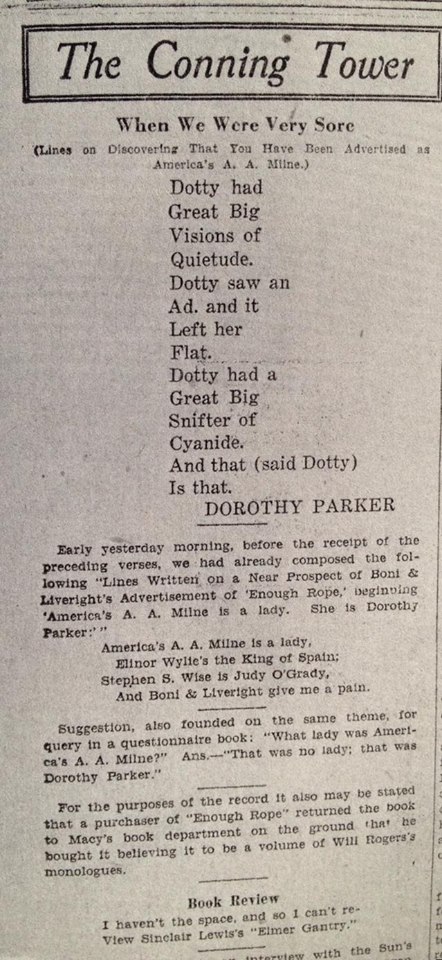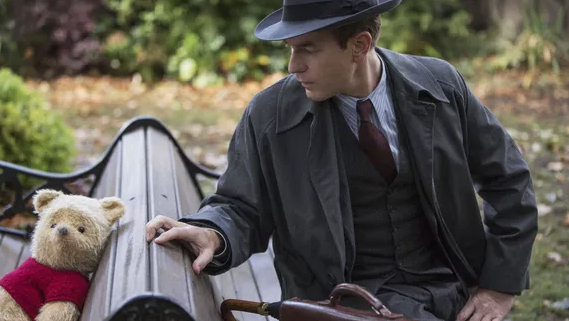Dorothy Parker and the Earlier A. A. Milne Business
With A. A. Milne back in movie theaters today, it’s time to revisit the beef that Dorothy Parker had with the author. The feud was flamed by her mentor, Franklin P. Adams, always known as FPA.
It’s common knowledge about what she thought about Winnie the Pooh, from Mrs. Parker’s book review published in The New Yorker, about The House at Pooh Corner, from October 1928:
And it is that word “hummy,” my darlings, that marks the first place in “The House at Pooh Corner” at which Tonstant Weader Fwowed up.
However, this is a year after Mrs. Parker had found herself in a mess about Milne. Her publisher, Boni & Liveright, were marketing her debut poetry collection Enough Rope with advertising copy, “America’s A. A. Milne is a lady. She is Dorothy Parker.” Not very smart.
Mrs. Parker wrote a response for FPA called “When We Were Very Sore.” This was published on March 10, 1927 in the New York World. She likely wasn’t paid for this verse, which is written in the Milne style. FPA had a lot of fun with this one. He quipped, “What lady was America’s A. A. Milne? Answer: That was no lady, that was Dorothy Parker.”

